The end is near!
The last two chapters took longer
to write than the rest of my novel. Usually, writing the ending is easier than the
beginning because as you near the final chapters the story should be converging on the event
horizon, collapsing on itself like a black hole, and the ending should be
inevitable. Right? It will seem that way to the reader. It isn’t that simple
for the writer.
What
if you didn’t end up telling
the story you meant to tell? That isn’t always a bad thing, but that
means there
are choices to make. You can follow through with the ending that seems
to flow
naturally from what you’ve written or you can force the story back on
track in
the final chapters. I’m not a big fan of forcing for the sake of plot,
but if
you feel strongly about it, do it. (because later you're going to
rewrite the novel in such a way that the forced ending seems to flow
naturally, but more about that next month.)
For Night Creatures, I chickened
out and wrote a weaker, albeit happier, ending. My beta reader wasn’t
impressed. He felt cheated that everything pointed to a darker conclusion. I
should have known better. Considering the extremes of the rest of the story,
the end was no place to play it safe. I promised to fix that in the next draft.
If you’re a complete pantser, you
might not have any idea how your story should end. But as a storyteller, I’m
sure you have an instinct for the natural conclusion. Quest completed? Goal
achieved? Character transformation complete? Congratulations, you’ve reached
the end of this tale. Don’t linger too long after the big climax but do give
the reader a sense of closure.
Please, don’t wrap up all your
loose ends in the final two paragraphs. Those should have been woven into the
story as you were nearing the ending. Twist endings take a deft hand so be
cautious with them. Have you ever seen the play/movie Murder By Death? At the climax,
the protagonist yells at the assembled detectives, “You've tricked and fooled
your readers for years. You've tortured us all with surprise endings that made
no sense. You've introduced characters in the last five pages that were never
in the book before. You've withheld clues and information that made it
impossible for us to guess who did it.” Don’t be that writer. (On second
thought, since he was accusing parodies of Hercule Poirot and Miss Marple,
maybe you should. Even the Doctor carries an Agatha Christie book with him in
the TARDIS.)
So… Now you have a completed first
draft. Congratulations! That’s a huge accomplishment. Be proud of yourself.
What’s next, you might be wondering. Send it off to a publisher?
Don’t. Don’t even think about that
yet.
I used to think that if I were any
good at writing my first draft would be perfect. *rueful chuckle* Then I read a
quote that changed my mind. I wish I knew who to attribute it to. “Even F.
Scott Fitzgerald wasn’t F. Scott Fitzgerald in the first draft.” Wait! What?
Stories didn’t just flow from his fingers perfect and wonderful? He didn’t type
The End at the bottom of his first
draft then drop the manuscript on his publisher’s desk? Holy smokes! So the work of writing isn’t simply
the physical act of typing the words? Who knew?
Apparently everyone knew except me. Ernest Hemingway stated, “The first draft
of anything is shit.” That might be a bit harsh, but I’m not about to argue that succinct comment with
him. (I’m aware that he couldn’t win a debate with a flower at this point, but
I meant hypothetical him. You knew that.)
You’re going to have to write a
second draft. Even if you didn’t force the ending. Even if you never made a
typo. Even if you ruthlessly polished every word before you finished your first
draft, you’re going to have to do a second one. I can hear you groaning from
here. Sorry, but that’s just the way it is. And I sympathize. I truly do. I’ve
always hated reading my work once I finished writing it. Telling the story is
fun. (Let me dream here that the first draft wasn’t a pain in the butt.) Fixing
the first draft is the same work without the creative fun. This is
the craftsmanship level of writing. This is where you put in your time.
BTW – here’s an excellent discussion of rewrites and if they're necessary.
So – onward to the second draft,
right?
Sorry. No. I have some advice that
I hope you’re ready to hear. This is one of the biggest secrets of writing.
It’s probably the most important trick up a writer’s sleeve. Are you ready for
the big reveal?
Patience.
Boo. That’s no fun. I know. It
sucks. It’s a virtue, fer chrissakes, and I’m not exactly a virtuous person. I
hate it and part of me wants to rebel against it, but I’ve learned how
important it is.
My novel needs all the breathing
room I can give it. Yours does too. A couple months is ideal, but at least give
it a few weeks. The longer the work, the longer the break. Don’t open the file
and don’t touch anything for a while. Time will make you more objective and
you’re going to need that distance.
~
Do you have problems bringing your
story to a close? Do you know before you start how it will end? Has the ending
ever changed while you were writing your novel? Share your tricks for wrapping
it up.
Next month, we’ll talk about the
second draft.
(This series originally appeared on ERWA blog, where there's discussion about the post, but I will answer any comments here too.)
(This series originally appeared on ERWA blog, where there's discussion about the post, but I will answer any comments here too.)










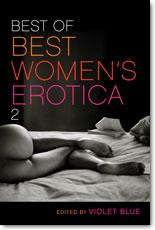

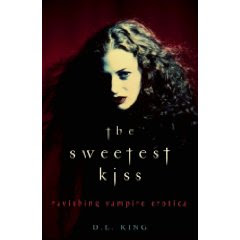


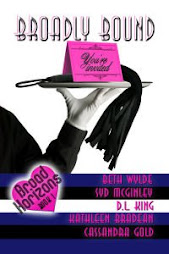.jpg)
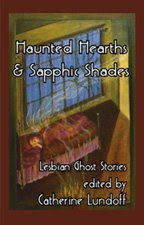

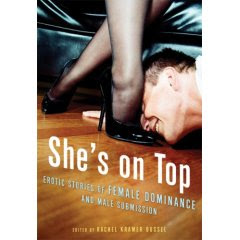








No comments:
Post a Comment